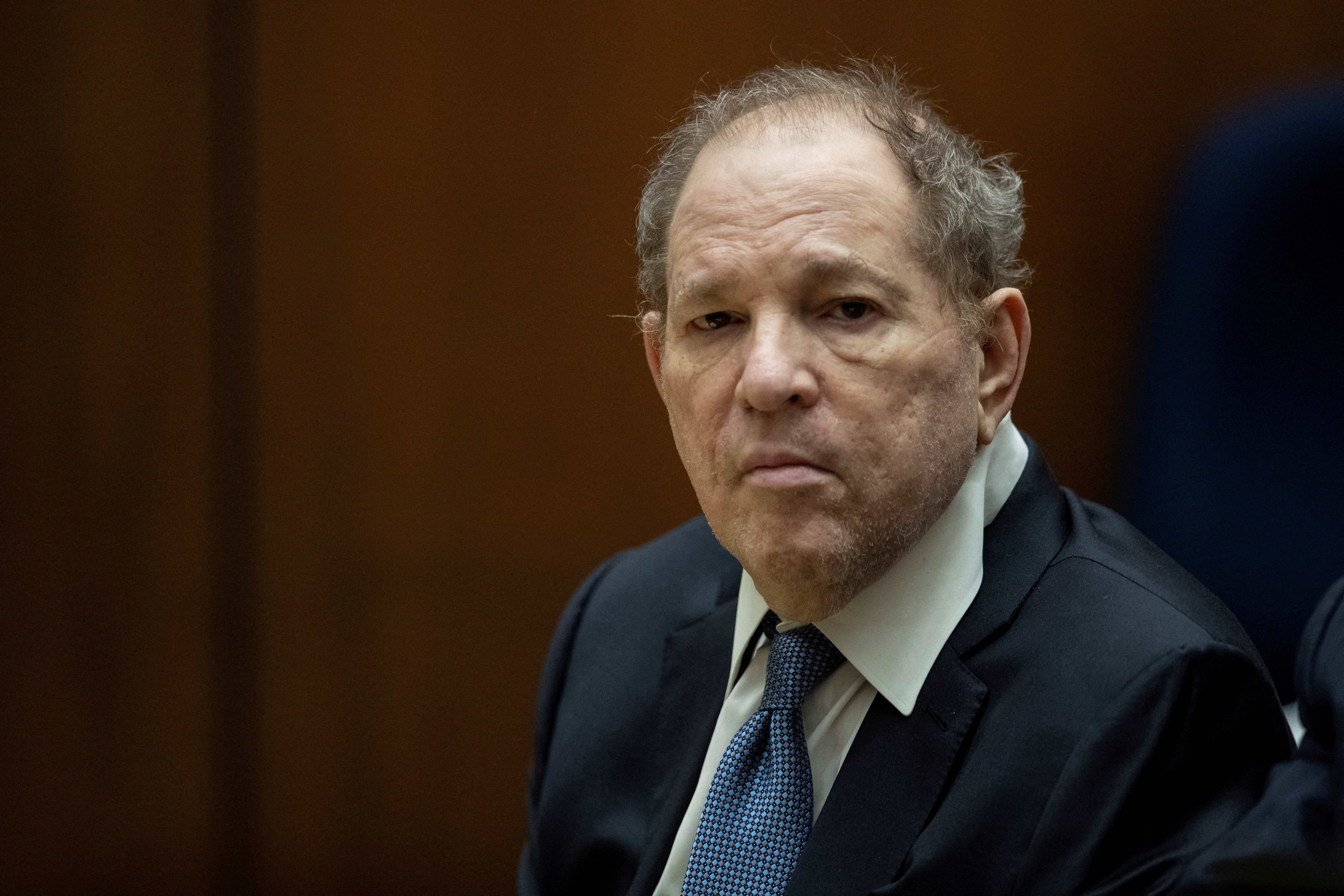LOS ANGELES, Feb 23 (Reuters) – Harvey Weinstein, the onetime Hollywood titan who came to epitomize a culture of pervasive sexual misconduct by powerful men that ignited the #MeToo movement, was sentenced on Thursday to 16 years in prison for the 2013 rape of an actress in Los Angeles.
The sentence, to run consecutively to the 23-year prison term that Weinstein, 70, already is serving for a sexual misconduct conviction in New York, made it all the more likely the Oscar-winning ex-producer will spend the rest of his life incarcerated.
Weinstein, seated in a wheelchair in brown jail garb, professed his innocence and implored the judge, “I beg your mercy,” moments before she pronounced his sentence. The two-hour proceeding unfolded in the same Los Angeles courtroom where a jury in December found Weinstein guilty of rape, forcible oral copulation and sexual penetration by a foreign object.

Register for free to Reuters and know the full story
The charges stemmed from an assault on a former model and actress, identified in court as Jane Doe 1, at a Los Angeles hotel in February 2013.
Addressing the court through tears and a trembling voice near the end of Thursday’s hearing, the woman said she had been a “very happy and confident woman” until Weinstein raped her. Then, “I lost my identity. I thought for sure that no one could love me. I was heartbroken, empty and alone,” she added, choking back sobs.
The 16-year prison term handed down by Superior Court Judge Lisa Lench was more lenient than the maximum 24 years recommended by prosecutors but far more stiff than the sentence sought by Weinstein’s lawyers.
Defense counsel Mark Werksman asked that Weinstein get no more than three years for each of the three counts on which he was convicted, to be served concurrent to one another, arguing the charges stemmed from “one continuing sexual assault” that occurred in “one frenzied 10- to 15-minute ordeal,” rather than as three separate criminal acts.
It was a rare courtroom admission of guilt by defense lawyers, even as Weinstein himself continued to deny any wrongdoing.
In his statement to the court, Weinstein insisted he did not know Jane Doe 1 and argued that she had fabricated her account for money.
“This is a made-up story. Jane Doe 1 is an actress. She can turn the tears on,” Weinstein told the judge. “Please don’t sentence me to life in prison.”
The defense also asked the judge to take into account Weinstein’s age and deteriorating health, including coronary artery disease and severe spinal issues.

FALL FROM HOLLYWOOD GRACE
It marked the latest low point in a remarkable fall from grace for the co-founder of Miramax Films, the wildly successful U.S. movie production and distribution house that produced such films as “Shakespeare in Love” and “Pulp Fiction.” Weinstein won an Oscar in 1999 as producer of “Shakespeare in Love,” that year’s Academy Award winner for best picture.
Mounting sexual misconduct allegations against Weinstein helped fuel the #MeToo movement, which has encouraged women to speak out about sexual harassment and abuse by powerful men in media, politics and other endeavors. The movement, which went viral on social media in 2017, seeks to break a culture of silence that has long allowed such conduct to go unchallenged.
Weinstein has said all of his sexual encounters were consensual.
Dave Ring, an attorney for Jane Doe 1, said Thursday’s sentencing provided his client “with closure and relief, knowing Weinstein will spend the rest of his life in prison where he belongs.”
The Los Angeles jury acquitted Weinstein of charges relating to a second alleged victim and failed to reach a unanimous verdict on charges arising from two other accusers.
One of them, documentary filmmaker Jennifer Siebel Newsom, now the wife of California Governor Gavin Newsom, had disclosed she was the alleged rape victim referred to in court records as Jane Doe 4.
Lench declared a mistrial on the deadlocked charges, and the Los Angeles County District Attorney’s Office has yet to decide whether to seek to retry Weinstein on those counts.
Defense attorneys argued that the women willingly had sex with Weinstein because they believed he would advance their careers, part of what they said was a widespread “casting couch” culture in the film industry. In two of the cases, they said the alleged sexual contact was fabricated.
Before pronouncing sentence, the judge denied a defense motion to throw out Weinstein’s conviction and grant him a new trial.
Weinstein was found guilty of sexual misconduct in New York in February 2020, and is appealing the New York conviction and prison sentence. He was extradited from New York to California in July 2021 to face trial in Los Angeles.

Register for free to Reuters and know the full story
Reporting by Steve Gorman; Writing by Lisa Richwine; Editing by William Mallard and Aurora Ellis
Our Standards: The Thomson Reuters Trust Principles.






